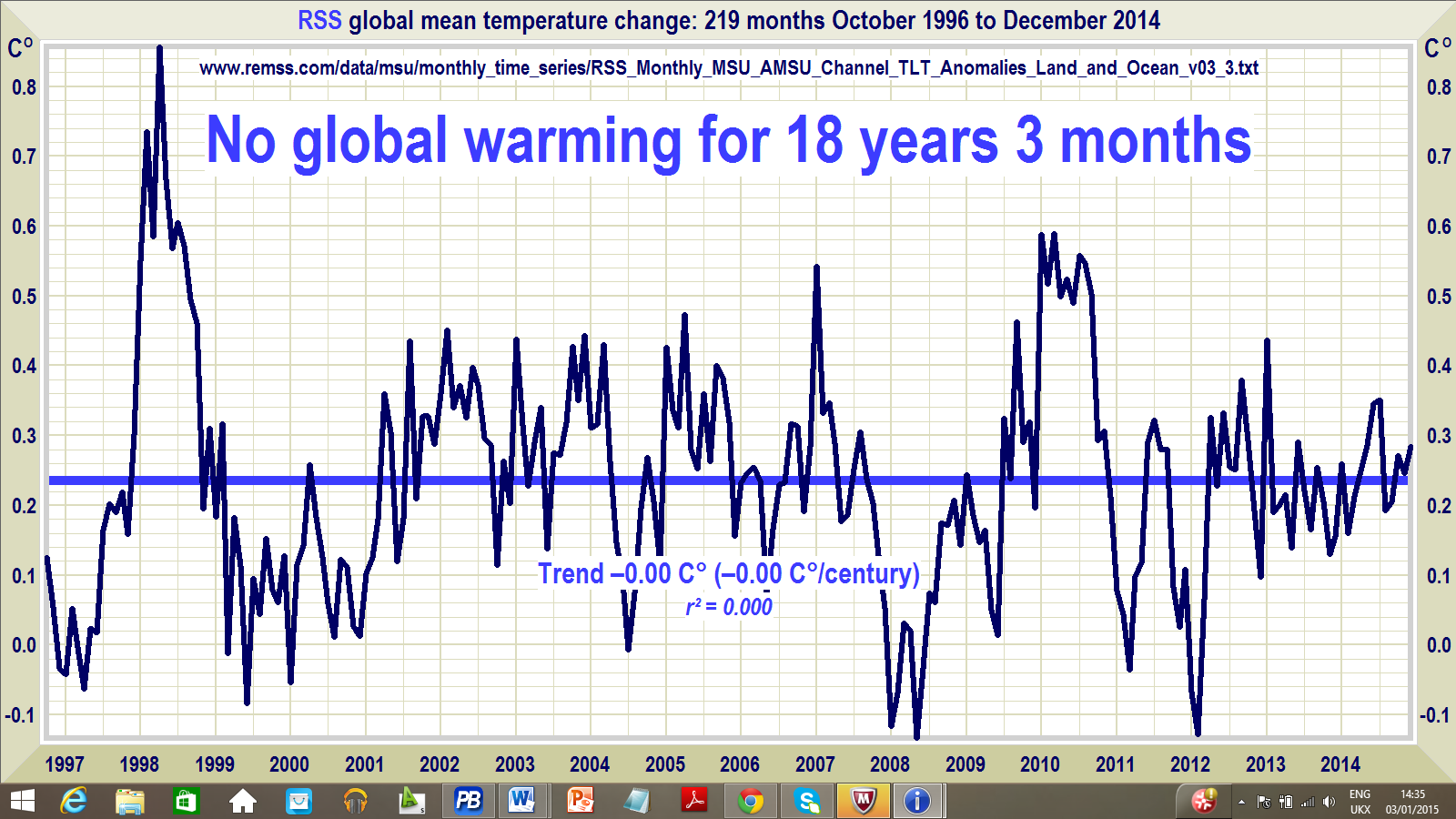Greenland Ice Sheet lost mass twice as fast between 2003 and 2010 as it did during the ENTIRE twentieth century
There was NO global warming during the period concerned (2003-2010). That pesky graph again:

So global warming cannot be held responsible for the changes described below. So what might have been the cause of the melting? Probably vulcanism of some sort. Greenland is not generally known for volcanoes at present but had a lots of them in the distant past. And the Arctic as a whole is still volcanically active. The volcanoes of neighboring Iceland are of course well known and the underwater volcanoes of the Gakkel ridge are quite explosive. So there may be more going on under the Greenland icecap than we know.
Some years ago an "unexpected" hotspot was discovered under the Greenland ice and that could well not be the whole of it. One might note that the extensive volcanic activity under the Antarctic icecap has only recently become known. It is therefore entirely reasonable to expect that something similar lies ready to be discovered in the Arctic
Note also that the melting recorded below was quite uneven -- not Greenland-wide. That is much more consistent with random vulcanism events than with an effect of global warming, which would affect the whole of Greenland
The Greenland ice sheet - a potentially massive contributor to land-encroaching sea-level rise - lost mass twice as fast between 2003 and 2010 as during the entire 20th century.
This is according to the first direct observations of the region's melting during the latest 110 years.
Greenland ice loss contributed to a global average sea level rise of 25 millimetres (about an inch) between 1990 and 2010 - mainly from surface melt.
The total mass lost was over 9,000 gigatonnes (billion tonnes). It was net loss, meaning the difference between ice melt and ice gain from falling snow or rain.
The study is the first time scientists have been able to provide an accurate estimate of how much Greenland contributes to sea level rise.
Data on the Greenland ice sheet has been lacking in reports of the UN's Intergovernmental Panel on Climate Change (IPCC), scientists in the study said.
It also allows researchers to pinpoint where the ice sheet is particularly sensitive and what controls the loss of glacier ice in Greenland.
'If we do not know the contribution from the all sources that have contributed towards global sea level rise, then it is difficult to predict future global sea levels,' said first author of the paper, Kristian Kjeldsen from the Natural History Museum of Denmark.
'In our paper we have used direct observations to specify the mass loss from the Greenland Ice Sheet and thereby highlight its contribution to global sea level rise'.
The scientists were particularly interested in the changes of the ice sheet after the Little Ice Age, a period from c. 1200 AD to the end of the nineteenth century.
This marks when the ice sheet was at its largest during the past millinium.
Changes of the Greenland Ice Sheet are observed when the ice retreats and leaves an imprint on the landscape.
The vegetation along mountain slopes was removed by the advancing ice and once the ice begins to retreat the freshly eroded part of the mountain slope is seen as a lighter colour than the non-eroded part where plants were growing all along.
The results show that some areas of the Greenland Ice Sheet have lost considerable amounts of ice during the twentieth century.
The mass loss along the southeastern and northwestern coast contributed between 53 and 83 per cent of the entire mass loss for the individual periods.
'One of the unique things about our results - which distinguish them from earlier model studies - is that we not only estimate the total mass loss of the entire ice,' said Kjeldsen.
'But we can actually calculate changes all the way down to regional and local levels and say something about changes for individual outlet glaciers'.
SOURCE
 --
--
No comments:
Post a Comment
All comments containing Chinese characters will not be published as I do not understand them